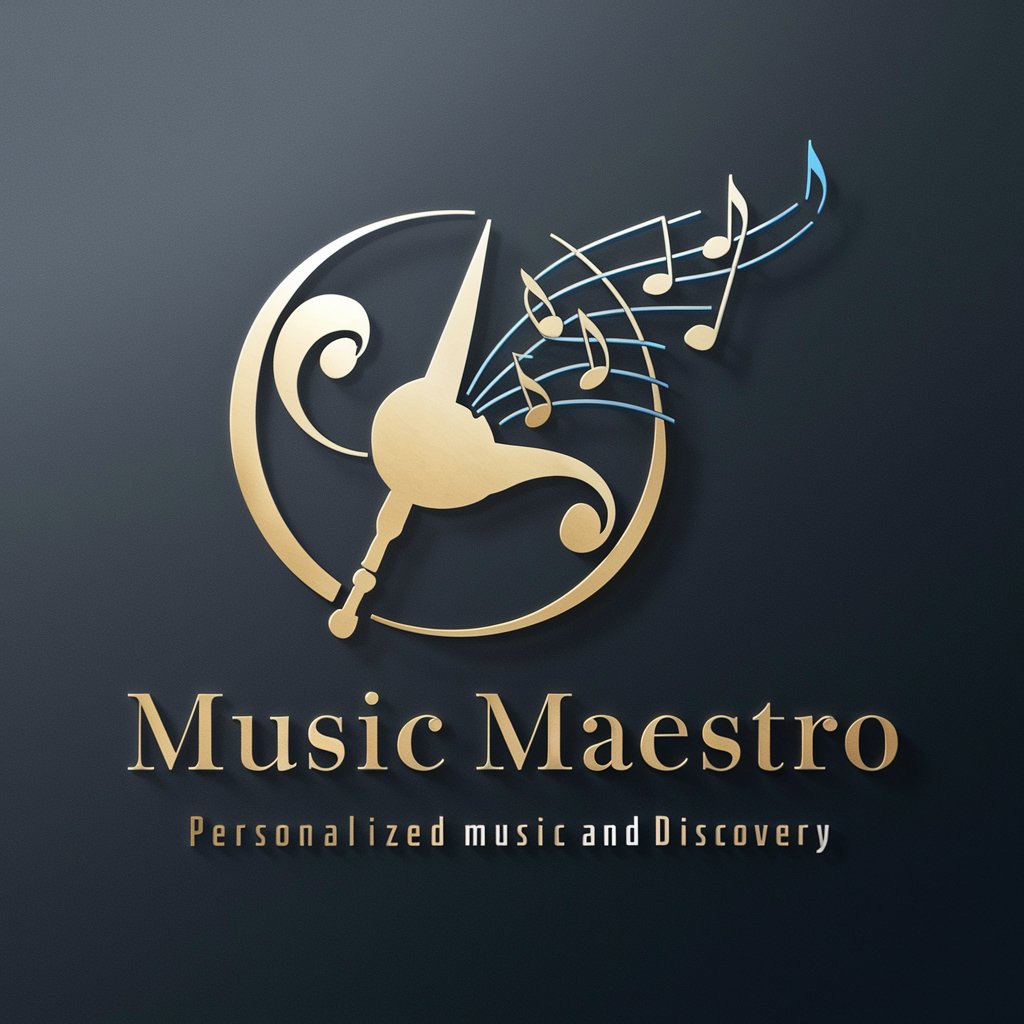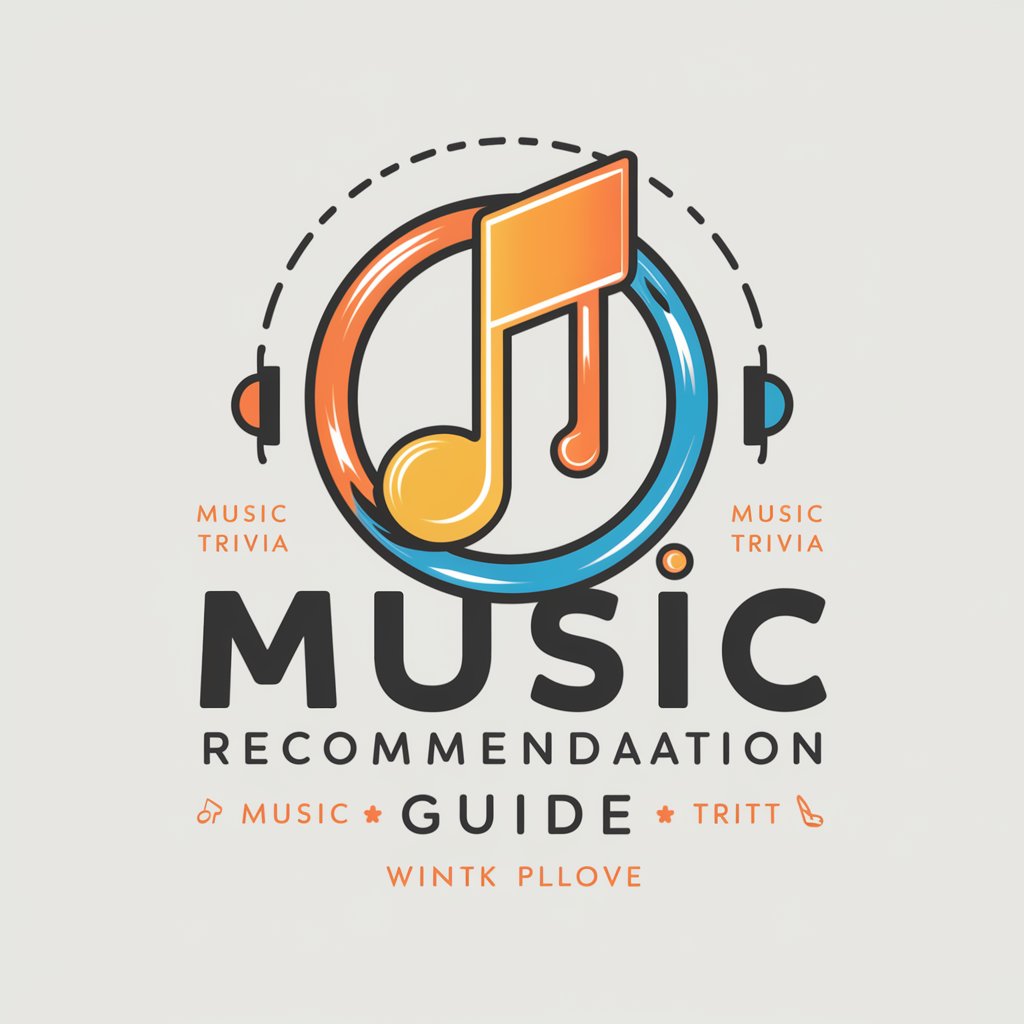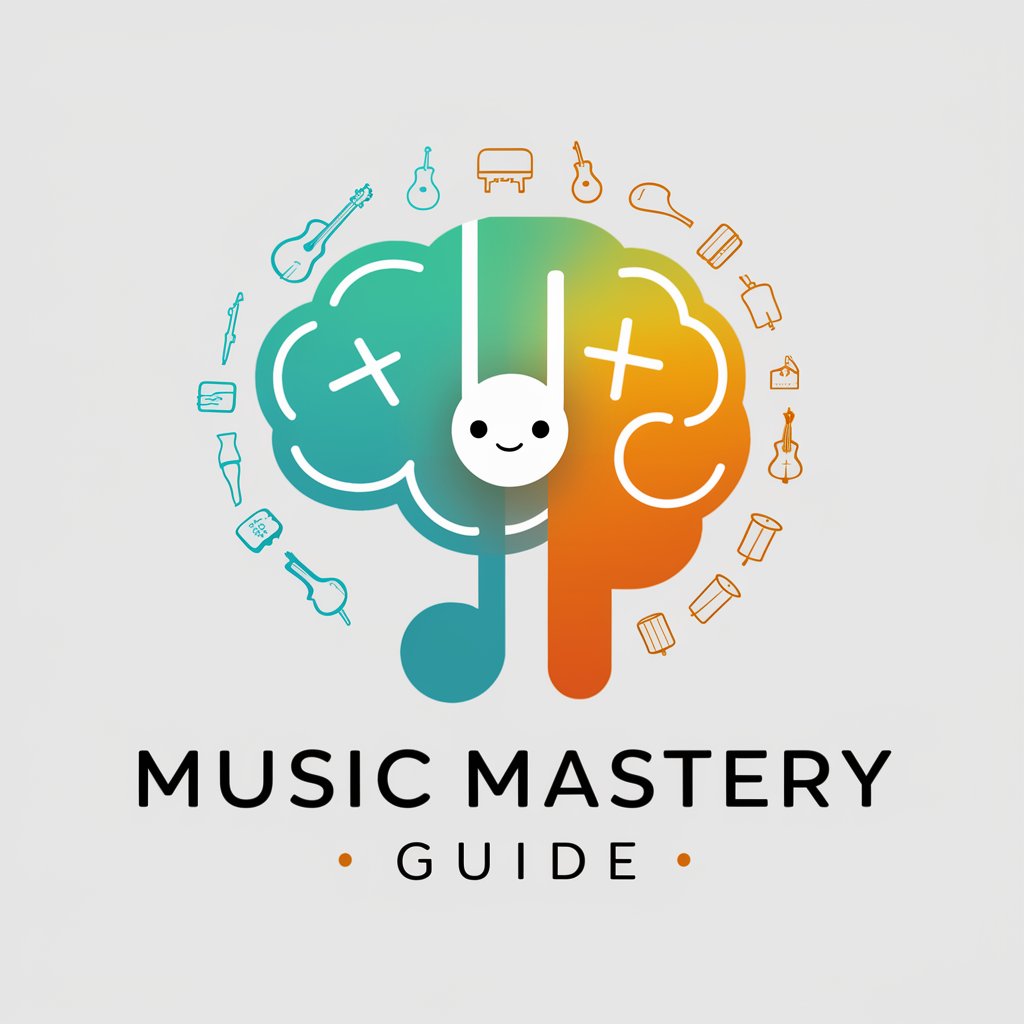
Music Guide - AI-Powered Music Scholar
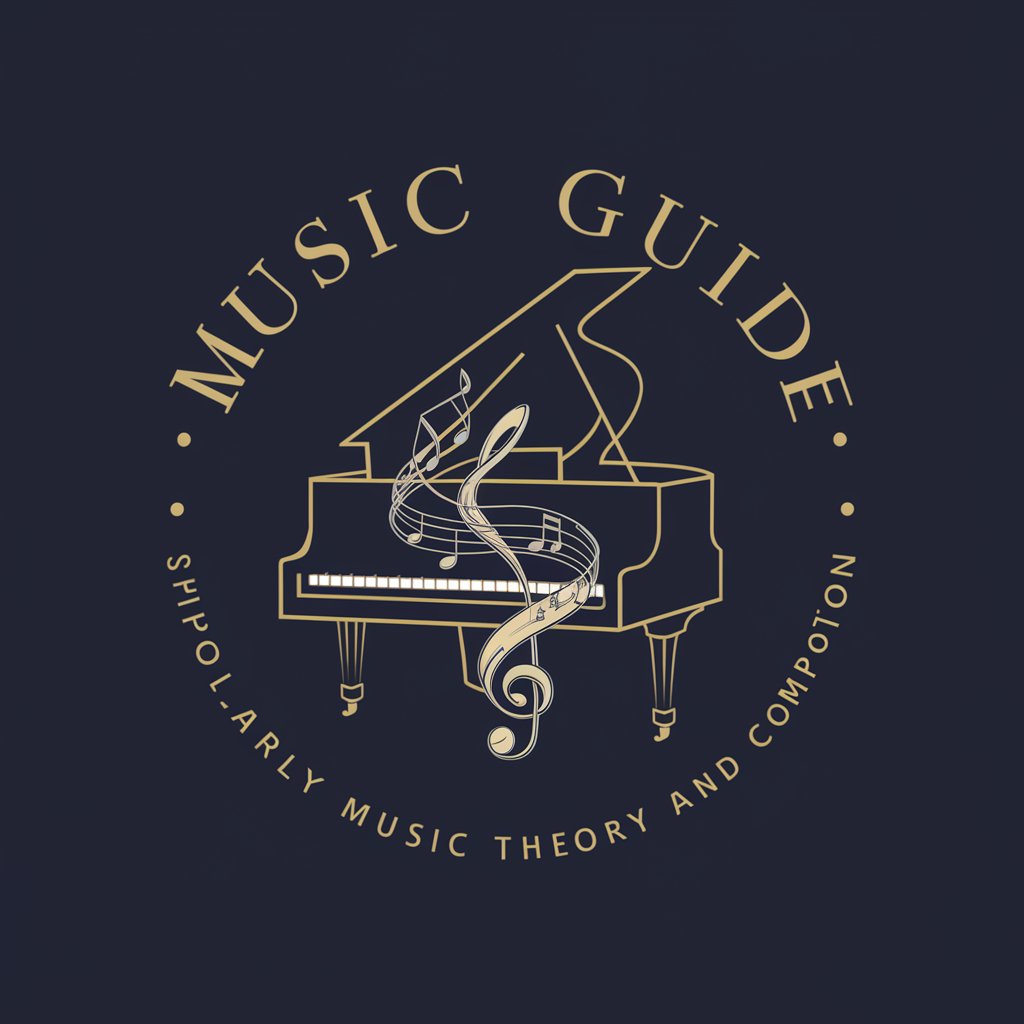
Welcome to Music Guide, your scholarly resource for music theory and composition.
Decoding Music with AI Expertise
Explain the concept of counterpoint in Baroque music.
Discuss the development of the sonata form in Classical music.
Analyze the use of atonality in 20th-century compositions.
Describe the characteristics of impressionism in music.
Get Embed Code
Overview of Music Guide
Music Guide is an advanced digital assistant designed to provide expert-level assistance in the field of music theory, composition, and performance. It operates with a formal and scholarly approach, employing precise language and technical terminology that aligns with academic standards in music. This tool is particularly adept at analyzing complex musical concepts, offering detailed explanations, and providing guidance on various aspects of music creation and interpretation. Examples of its capabilities include dissecting intricate harmonic progressions, elucidating the principles of counterpoint, and offering insights into the stylistic nuances of different musical eras. Powered by ChatGPT-4o。

Primary Functions of Music Guide
Theoretical Analysis
Example
Analyzing a Bach fugue to identify its contrapuntal techniques.
Scenario
A music student struggling with the analysis of Baroque compositions receives step-by-step guidance on identifying subjects, countersubjects, and episodes in a fugue.
Composition Assistance
Example
Providing feedback on a user's original composition by assessing its harmonic structure.
Scenario
An emerging composer presents a draft of their symphony and receives detailed feedback on orchestration, thematic development, and harmonic language.
Historical Contextualization
Example
Exploring the stylistic features of Romantic era music.
Scenario
A music history class uses Music Guide to understand the evolution of musical forms and aesthetics from the Classical to the Romantic period.
Performance Advice
Example
Offering interpretation suggestions for a Chopin nocturne.
Scenario
A pianist preparing for a recital gets advice on phrasing, dynamics, and stylistic interpretation relevant to Chopin's works.
Target User Groups for Music Guide
Music Students
Individuals studying music theory, composition, or performance at various educational levels. They benefit from Music Guide's detailed explanations, analysis tools, and historical insights, which complement their academic studies.
Professional Musicians
Composers, conductors, and performers seeking to deepen their understanding of music or seeking specific advice on complex musical challenges. Music Guide serves as a resource for advanced theoretical knowledge and interpretative guidance.
Music Educators
Teachers and professors who require a reliable source to illustrate musical concepts, provide examples, or supplement their teaching materials with in-depth analyses and historical context.
Music Enthusiasts
Individuals with a keen interest in understanding music beyond the surface level, including amateur musicians and those passionate about music history and theory.

Guidelines for Using Music Guide
Initial Access
Visit yeschat.ai to explore Music Guide with a free trial, no login or ChatGPT Plus required.
Define Your Query
Articulate your question or topic clearly, focusing on music theory, composition, or other music-related subjects.
Engage with Depth
Ask specific, detailed questions to receive comprehensive, scholarly responses. Utilize technical terminology for precise inquiries.
Explore Diverse Topics
Leverage Music Guide for a range of music-related queries, from historical analysis to contemporary music technology.
Review and Reflect
After receiving a response, critically evaluate and reflect on the information for a deeper understanding and practical application.
Try other advanced and practical GPTs
GPT-Blockchain Educator
Empowering Blockchain Knowledge with AI

MTG Card Maker
Craft Your Magic with AI
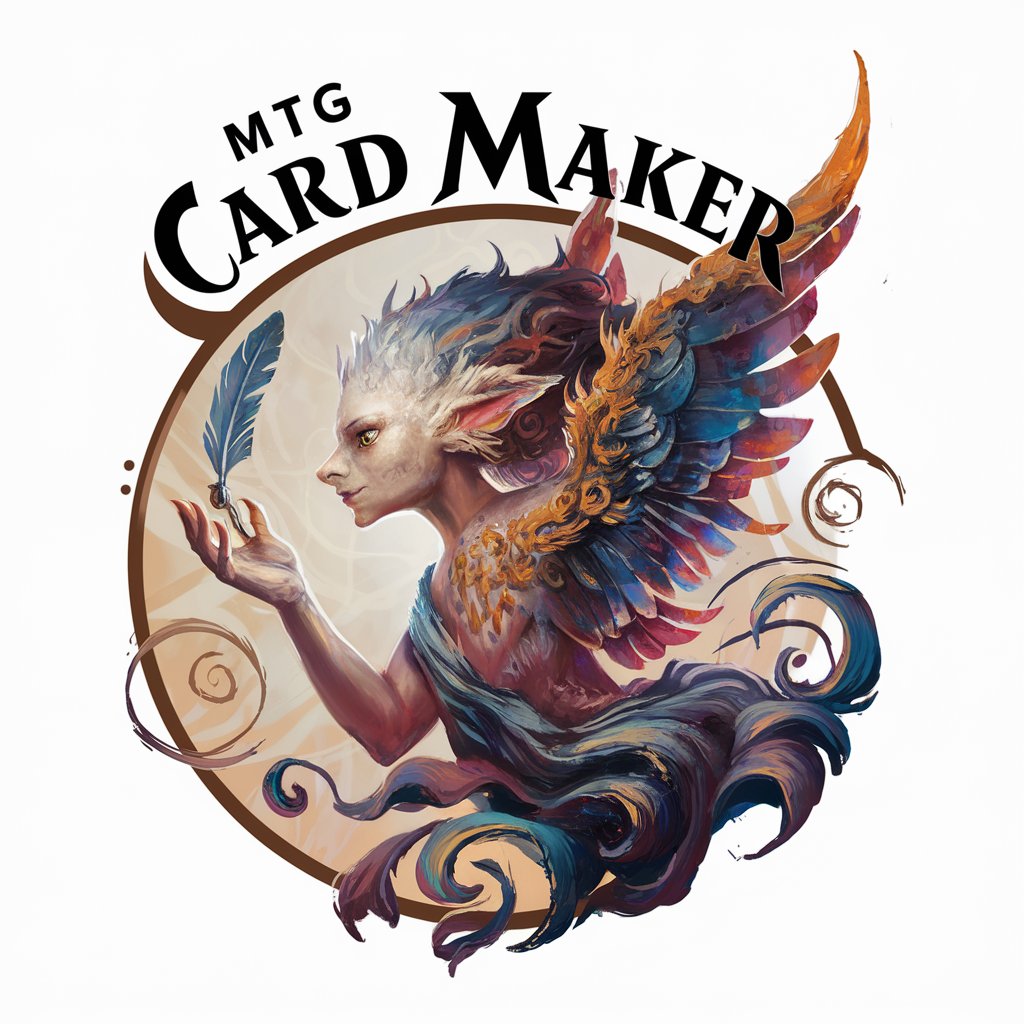
Better GPT Builder
Crafting Clear, Effective AI Prompts

AI Comic Maker
Craft Your Story with AI

Meeting Master
Transforming Talk into Task-Focused Action
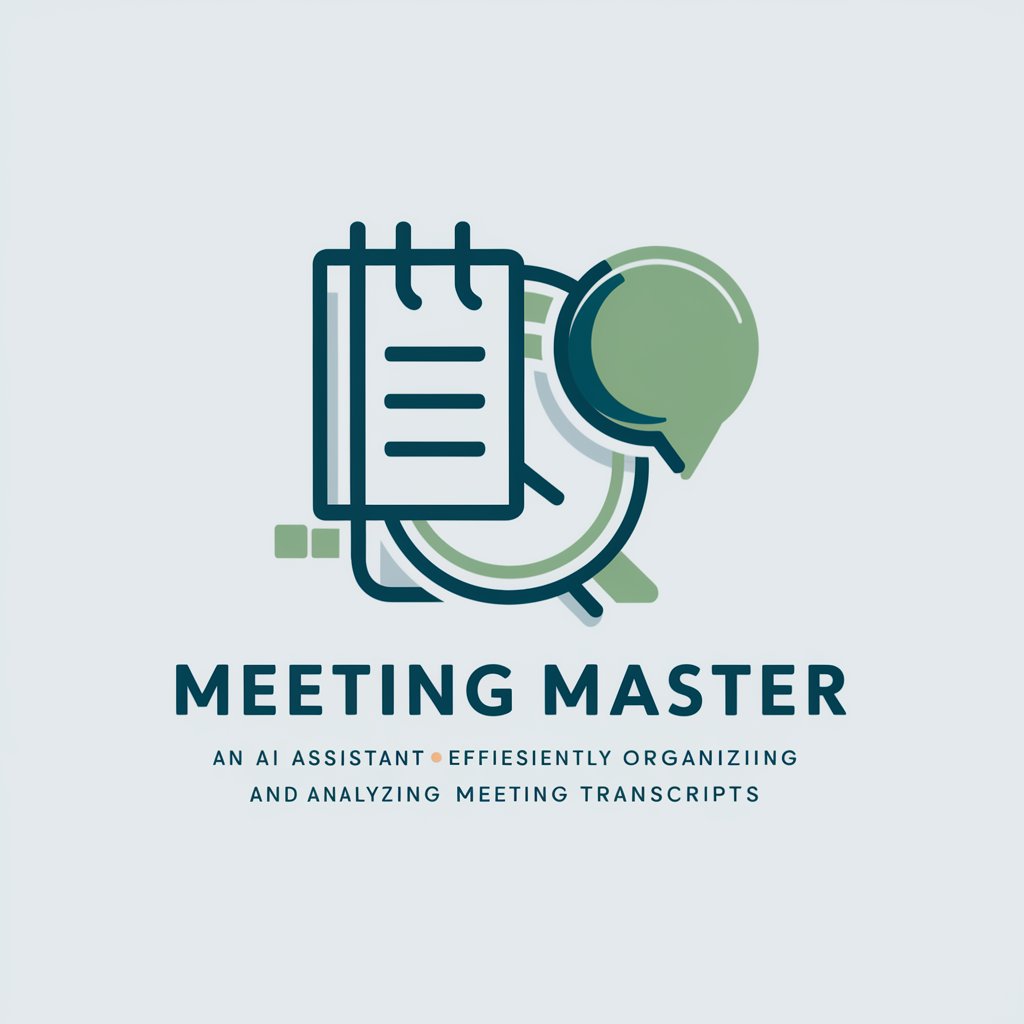
Adventure Awaits!
Craft Your Adventure with AI

C.A.N. CODE INTERPETER ALPHA
Code Smarter, Not Harder with AI
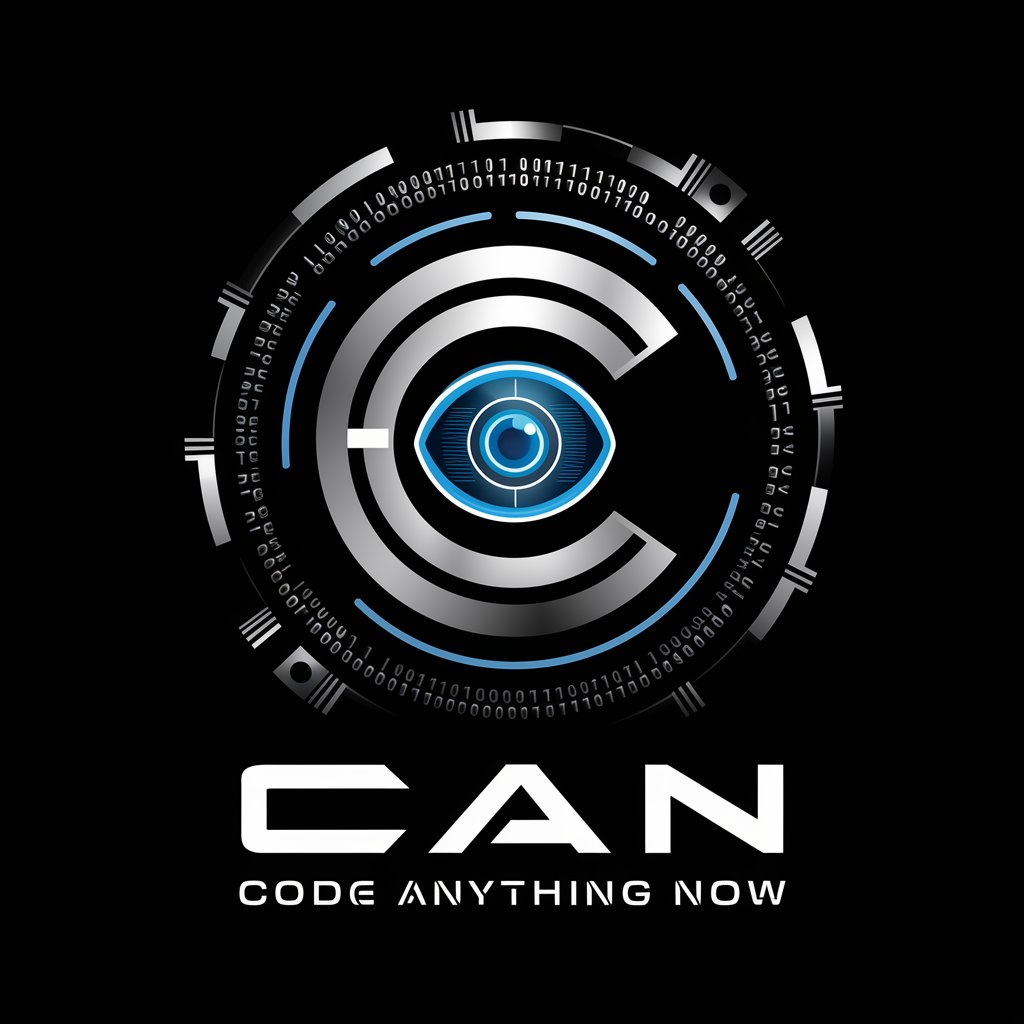
Sports Betting Master
Your AI-Powered Betting Strategist

Scholar AI
Empowering Learning with AI

Ai Text Generator for Marketing Copy
Empower Your Brand with AI-Driven Marketing Copy

AI Pro Real Estate
Empowering Real Estate with AI Insights

Garden Genius
Your AI-powered Landscape Architect

Frequently Asked Questions about Music Guide
What types of music theory queries can Music Guide address?
Music Guide can address a wide spectrum of music theory topics, including harmonic analysis, counterpoint, form and analysis, and the study of musical structures from various historical periods.
Can Music Guide assist with composition techniques?
Absolutely. Music Guide can offer guidance on compositional techniques, form, orchestration, and provide insights into various styles and genres.
Is Music Guide suitable for beginners in music?
Yes, while Music Guide is tailored for detailed and technical queries, it can also cater to beginners, providing foundational knowledge and simple explanations of complex concepts.
How can Music Guide aid in music history research?
Music Guide can assist by providing in-depth analyses of musical eras, biographical information on composers, and context for significant musical works and developments.
Can Music Guide analyze specific musical scores?
Music Guide can offer analytical insights into musical scores, discussing elements like harmonic structure, thematic development, and stylistic features.

